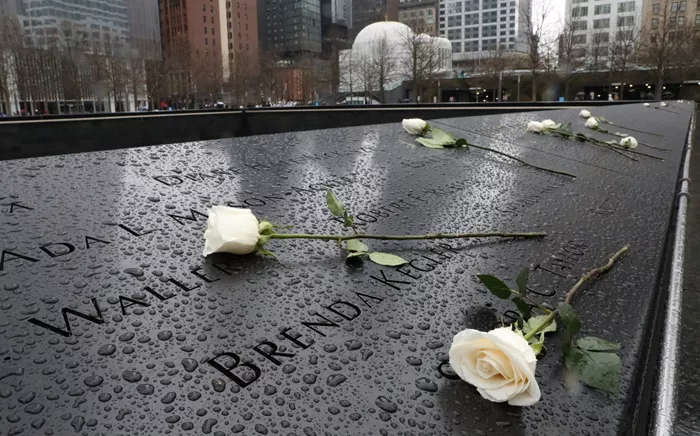More than 23 years after the tragic collapse of the Twin Towers, the number of people diagnosed with 9/11-related illnesses continues to rise. Among those affected are survivors and responders exposed to toxic dust and debris in lower Manhattan.
A critical lifeline for those individuals has been the World Trade Center Health Program, which provides treatment for various conditions such as cancer, asthma, and post-traumatic stress disorder.
As of December, nearly 132,000 people are enrolled in the program, and 64% of them are battling at least one illness linked to the events of 9/11. Cancer remains the most prevalent condition, affecting more than 40,000 members. While some individuals join the program after developing illnesses, others seek annual screenings for early detection.
However, the future of the program has become uncertain due to recent federal staffing cuts. In the past 10 weeks, the program’s staff has been significantly reduced following decisions made by the Trump administration. Lawyers and advocates have expressed concern that these cuts could delay diagnosis and treatment for patients.
“These cuts could potentially delay life-saving treatments and early cancer detection, and people will die as a result,” said Todd Cleckley, a nurse and legal expert at Barasch & McGarry, a firm representing 9/11 responders and survivors.
The staffing issues began in February when 16 program employees were fired as part of a broader action to remove probationary workers. While the positions were temporarily reinstated after bipartisan criticism, the situation took another turn in late March.
The Department of Health and Human Services (HHS) announced large-scale layoffs, including the dismissal of 16 staffers at the World Trade Center Health Program, along with its director. Though the director was reinstated in early April, the other staffers have not been brought back.
These staffers were essential to the program’s operations, including certifying that illnesses were related to 9/11 and eligible for federal funding. Without their involvement, the program has struggled to keep up with patient enrollment and treatment certifications.
Benjamin Chevat, the executive director of 9/11 Health Watch, emphasized the critical role these positions played in ensuring patients receive the services they need. “They weren’t directly on the payroll, but their work was essential for the program to run smoothly,” Chevat said.
In response, advocates are planning to visit Capitol Hill to urge lawmakers to reinstate the program’s staffers. Meanwhile, New York City Mayor Eric Adams has called for the federal government to restore the resources necessary for the program’s success.
Before the cuts, people who were affected by 9/11 could apply to join the program and typically be accepted within a few weeks. However, since April 1, no new members have been enrolled, and Chevat noted that around 200 people per month typically joined the program.
Legal professionals, such as Michael Barasch, are still submitting applications for clients, but they are left in limbo, uncertain when — or if — their appointments will be scheduled.
The program, which operates in several health clinics mostly in the New York area, provides screenings for a range of illnesses tied to 9/11. Certified doctors assess patients for conditions such as cancer and lung diseases, and if a link to 9/11 is confirmed, the federal government covers the cost of treatment. Last year alone, over 8,200 cancer diagnoses were certified.
Delays in certification are particularly worrying, as certain cancers require immediate attention. “People will die because of these decisions,” Barasch warned. Many cancers, including lung cancer and mesothelioma, can develop years after exposure to hazardous materials like asbestos, which was released in large quantities when the Towers fell.
Michael O’Connell, a former firefighter who assisted in the search and rescue efforts at Ground Zero, described the toxic conditions. He believes the program was crucial in helping him manage a rare disease he developed after 9/11.
As the program faces staffing challenges, the fear is that hospitals might stop offering treatments, including chemotherapy, if the federal government doesn’t fulfill its reimbursement obligations. Barasch noted that some of his clients are already concerned about continuing their cancer treatments.
The 9/11 Health Program, which was already under financial strain due to budgetary shortfalls, could face even more difficulties if funding issues aren’t addressed soon. In December, Congress failed to include long-term funding in a major spending deal. Some lawmakers predict that, without additional funding, the program could face major cutbacks by October 2028.
A bipartisan bill introduced in February aims to secure funding for the program until 2090, but the future of the program remains uncertain as advocates continue to push for a solution.
Related topics:
- Immunotherapy Offers Cancer Patients An Alternative To Surgery And Chemo
- What Happens To Your Body During A Marathon? 7 Key Effects You Should Know
- Ultra-Processed Foods Make Up Nearly Half Of U.S. Grocery Purchases


